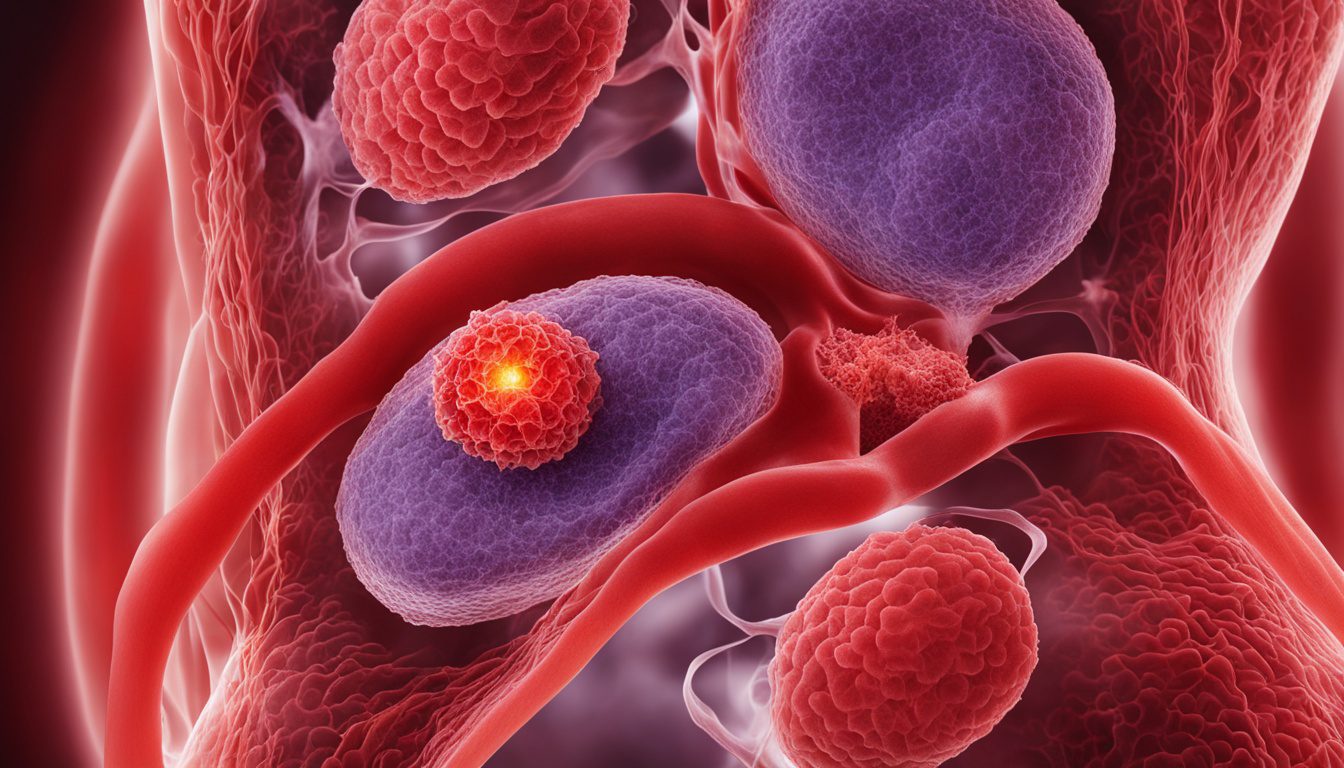Proctitis is when the rectum’s lining gets inflamed. It can happen due to radiation, infections, or IBD. Sexually transmitted infections are also a cause. Signs you might have proctitis are pain, bleeding, and needing to go often.
A doctor finds proctitis through a checkup and your health history. They might use endoscopy or stool tests too. Most times, it can be treated with drugs or changes to how you live. But, stem cell therapy is now another option for some people.
Stem cell treatment is doing well in labs, especially for radiation proctitis in animals. Clinics are checking if this could work for people in studies right now.
Key Takeaways:
- Proctitis is about inflamed rectum lining.
- It comes from radiation, infections, or IBD, even STIs.
- Symptoms include pain, bleeding, diarrhea, and needing to go often.
- Diagnosis uses exams, past health, endoscopy, and stool checks.
- Treatments are medicines, lifestyle changes, and sometimes, stem cell therapy.
- Stem cells might help by reducing inflammation and fixing tissues.
- Research promotes the idea of stem cell therapy further in human trials.
Stem Cell Therapy for Proctitis: A Potential Treatment Option
In recent years, stem cell therapy has become a potential treatment for proctitis. Studies with rat models of radiation-induced proctitis showed good signs. These studies found that mesenchymal stem cells could reduce inflammation and help with tissue repair.
Mesenchymal stem cells are special because they can change the immune system. This change leads to tissue repair and regrowth. In a rat study, injecting certain stem cells led to less scarring and more cell growth on the rat’s lining.
Results show that using MSCs may help reduce inflammation and speed up healing in proctitis. But, more studies in human clinical trials are crucial to check its safety and how well it works.
Let’s dive deeper into what the rat study found about stem cell therapy for proctitis:
| Mesenchymal Stem Cell Type | Results |
|---|---|
| Human Placenta-Derived (PD) MSCs | Reduced fibrosis and increased proliferation in the rat mucosa |
| Adipose Tissue-Derived (AD) MSCs | Reduced fibrosis and increased proliferation in the rat mucosa |
This study’s conclusions shine a light on stem cell therapy’s potential. It might help in lowering inflammation and healing tissue in radiation-induced proctitis. Yet, the study was done on animals. We need more research in humans to confirm its safety and benefits.
Conclusion
Stem cell therapy offers hope as a treatment for proctitis. Tests with HSCs and MSCs in animals show they can lessen inflammation and help repair tissue. Yet, we need more studies to be sure if it’s safe and works well for people.
Now, there are ongoing trials and studies on stem cell therapy. They aim to find the best ways to treat and see the results over time. It’s key for both patients and doctors to keep up with new findings in this area. This keeps everyone informed for making smart treatment choices.
Every patient’s situation might make stem cell therapy more or less suitable. Thus, it’s crucial to think about what each person needs. Working closely together, patients, doctors, and researchers can improve how we use stem cells in treating proctitis.
FAQ
Q: What is proctitis?
A: Proctitis means the lining of the rectum is inflamed.
Q: What are the symptoms of proctitis?
A: People may notice pain, blood in the rectum, and diarrhea. They might also need to use the bathroom a lot.
This condition can make you feel like you have to go even when you don’t.
Q: What causes proctitis?
A: It can happen from different things like radiation therapy, infections, and some diseases. Even some STDs can cause proctitis.
Q: How is proctitis diagnosed?
A: Doctors check for proctitis by asking about your health and doing a physical exam. They might also use a small camera to look inside your rectum.
Stool tests can give more clues, too.
Q: What are the treatment options for proctitis?
A: You can treat proctitis with medicine, changing your lifestyle, and sometimes with stem cell therapy.
Q: Can stem cell therapy be used to treat proctitis?
A: Yes, it shows that it can help reduce inflammation. Scientists are studying if this kind of therapy works well in people.
Q: Is stem cell therapy for proctitis safe and effective?
A: It looks promising, but we still need more research. Scientists need to see if it really works and is safe for people.
Q: What are hematopoietic stem cells (HSCs) and mesenchymal stem cells (MSCs)?
A: HSCs can become any kind of blood cell. MSCs can grow into bone, cartilage, or fat.
Q: Are there any other potential treatment options for proctitis?
A: Yes, besides stem cell therapy, people can use medicine and make lifestyle changes. It’s also important to treat any other health issues that might be causing proctitis.
Q: How can proctitis be prevented?
A: To avoid it, practice safe sex and keep clean. Also, if you have any bowel diseases, get them treated. This can help prevent proctitis.

